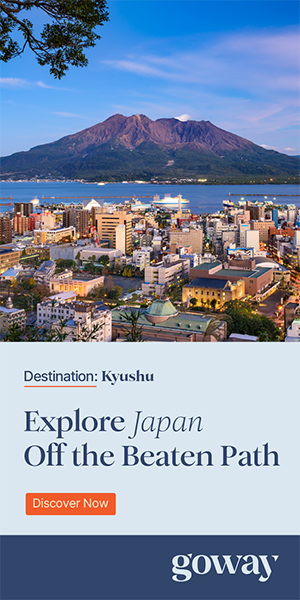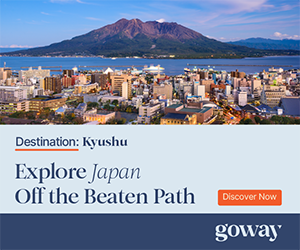Six Ways to Master Product Knowledge and Why It’s Important
by Steve Gillick
Product knowledge is the number one trait that travelers look for in travel agents, according to the Ensemble Agents Make a Difference Survey. Photo: Shutterstock.com.
The results of Ensemble’s Agents Make a Difference survey appeared in the travel news recently. When asked about the skills and services that customers appreciate the most from travel agents, product knowledge took the top spot at 65 percent, with destination knowledge following at 53 percent. Rated way down the list was price, at 11 percent.
One might rightly conclude that a travel agent is perceived as a value provider rather than a transaction facilitator. And it’s no wonder, based on:
- An overwhelming number of products on the markets.
- Internet information overload affecting clients.
- Tour operators tuning in to special interest travel and thereby adding to the products they are already marketing. For example, with more than 16 million DNA test kits sold, ancestry/genealogical tourism is making great strides.
- Social media creating a demand for selfie venues (try Ernie the Turtle, in Turtleford, Saskatchewan), and for boasting rights (travel one-upmanship — if you ride a camel in Rajasthan, I will ride a water buffalo in Vietnam); and for unique travel ideas (I just read about the cave in Kumomoto, Japan, where the legendary Swordsman, Miyamoto Musashi, retired in 1643 to write the Book of Five Rings. As a student of Japanese culture, I have now added a visit to this cave to my upcoming trip).
- The proliferation of advertisements like those for Waterways Cruises, with the accompanying small print of the conditions related to the services. Travelers want a professional to explain the heads-and-tails of what all those conditions actually mean for them.
- Geopolitical concerns (Skift.com refers to this as “permanxiety” – the constant state of worry afflicting travels) with the result that safe, comfortable, ease-of-mind alternative destination suggestions have attached themselves to the expectations of many travelers.
It’s not that the job description for career travel agents has been radically revised, but it’s a matter of adapting to the times and understanding the needs of travelers. It’s a matter of being creatively resourceful, managing your time, fine-tuning your relationship with the suppliers who provide the products you need to master, and setting out an action plan for acquiring and storing the immense volume of knowledge that is your bread-and-butter. Here, then, are 6 ways to master product knowledge.
1. Product mind-mapping.
It sounds over-simplistic, but you need to define all the products that you sell, in terms of their relation to each other. At conferences, you’ve probably done mind-mapping exercises where, on a piece of paper, you start with one idea and then draw a line to a consequence of that idea; you circle it and then draw other lines, each of which raises questions or concerns about the original idea. As a team exercise, take a simple idea, such as the client wants to go on safari. Then map out all the products you need to contact/know about that product. For example:
- Tour operators who feature safari
- What kind of safaris are available? (group, customized, adventure, luxury)
- Accommodations/lifestyle options? (tenting, tented, lodge, hotel, luxury)
- Destination options? (Namibia, Botswana, Tanzania, South Africa, etc.)
- Tourism activities when not on safari (city tours, villagers, culture, foods, wine)
- Transportation options (flights, transfers, rail, cruises)
- Insurance and emergency preparedness
But the mind-mapping continues as you break down all the different products and –what makes you the travel expert — you identify key differences between each product in terms of client needs.
2. Supplier relationship management (SRM).
SRM is a first cousin to CRM (Customer Relationship Management): it’s an astute way of managing the assets of your agency or home-based business. Every supplier, every product you work with is treated as a treasure chest of resources to provide you with information, help you customize an experience for a client, and enhance your revenue-generation skills. While this is particularly true with preferred suppliers, all suppliers in your database are part of the secret of your success. They will be there when you need them.
3. Role-playing.
While you may know about a product when a specific need arises or a special promotion is occurring, the product may offer a lot more behind the scenes. A cruise company may be offering a trip along the Irrawaddy and Mekong Rivers, but what other destinations and or experiences does the company offer? Learning about products has been likened to studying for an exam — except that you can’t forget everything the day after the exam is written. An effective way to practice your product knowledge is to role-play with another travel professional or even with a friend or family member. Pretend they want to visit the Galapagos. Tell them to be picky about details, ask a lot of questions, and act like they are really going on this trip. Practice is the key to being able to articulate the goods when in a client situation. Think of it as a rehearsal of your selling script.
4. Many suppliers have specialist programs to further build up your confidence about knowing and selling their product.
Usually a certificate of achievement is provided upon successful completion of the program and oftentimes there are perks, too — which could be in the form of travel discounts, contests, fam opportunities, commission incentives, referrals and more.
5. Sun Tzu was a travel agent?
Well no, he was a Chinese philosopher in the late 6th century B.C., famous for his treatise on The Art of War as well as the legendary advice that “you should keep your friends close but your enemies even closer.” In the language of travel, we can embrace the idea of keeping your friends close but the reality is that you should keep your suppliers even closer. It’s been said so many times that a travel agent’s digital rolodex with all their supplier contacts, is one of the bits of magic that an experienced travel agent can produce, seemingly out of thin air, when a client wants something special.
6. 24/7 availability.
A travel career is definitely a 24/7 mission to become the most knowledgeable, confident and client-supportive advisor possible. Therefore, if you see a billboard or a television commercial for a cruise or train excursion; if you’re into the tennis matches in France, the darts championships in England, the soccer matches in Russia; if you’re watching Star Wars: The Last Jedi, partially filmed on Skellig Michael in Ireland; these are all subliminal suggestions for you to ask yourself if you know enough about sending a client to the destination and the products that complement the trip. Add this to your research list. This is also why fam trips are so important to learning about suppliers. Before you embark on any fam, make a (very) long list of what you need to know from the suppliers they have included on the fam, as well as those NOT included (the wedding specialist, the wine maker, the museum curator, etc.)
Mastering product knowledge comes from initiative and experience during your travel agent career — and depends on your keen sense of curiosity and the need to know everything for the sake of your current and future clients … but also for your own satisfaction. Now that’s a pretty exciting action plan.


















